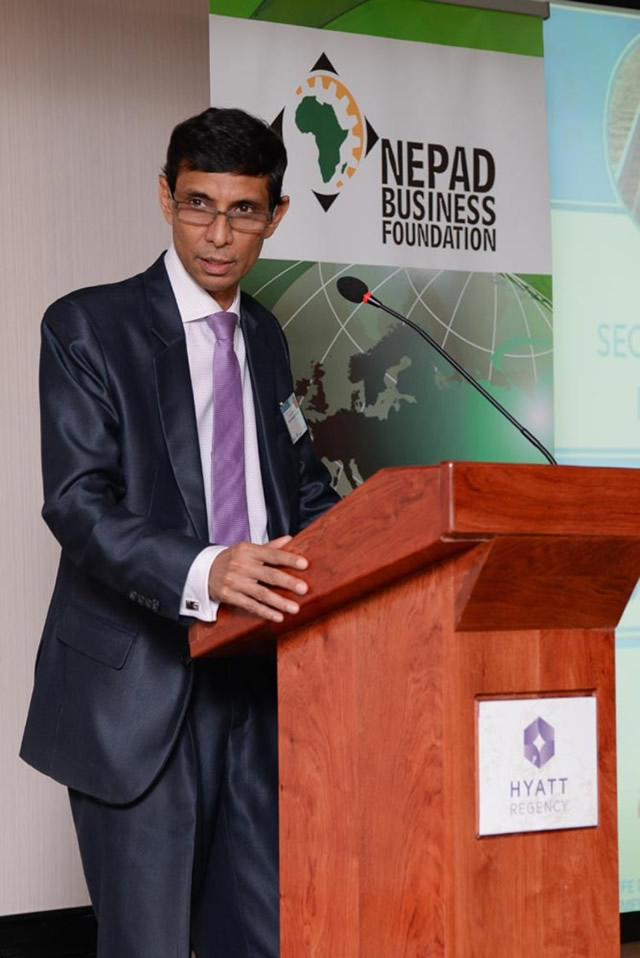SADC gears up for regional integration

JOHANNESBURG. — With African economies beginning to stagnate and take strain due to the downturn in the global economy coupled with China’s drop in demand for African resources, both government and business leaders in Africa are under enormous pressure to reinvent the continent’s long-term development strategy and chart the next growth path for Africa.The recent economic conditions will reverse much of the continent’s impressive growth over the past decade, which hinged on the resource super cycle that ended in 2012 with the slowing global economy. The negative economic climate is affecting Africa as a whole but the effects are even worse for the Southern Africa Development Community (SADC) region as it is battling the challenges of dealing with serious drought conditions brought on by the El Niño.
In order to ensure long term sustainability and growth beyond reliance on export of resource commodities, Africa must quickly diversify its economic growth sectors and encourage processing of raw materials into finished goods before export. This can only be done through industrialisation and creation of a strong manufacturing sector, which will lead to the creation of jobs, spur the development of SMEs and for Africa to export quality locally produced goods and services.
Countries must develop the necessary infrastructure to support this new growth, improve the business environment and provide conducive policies and incentives for companies to establish factories and processing plants. This will enable African economies to better survive economic downturns by moving higher up the production and manufacturing value chains.
The private sector’s role is pivotal to lead and own the industrialisation process, but how can governments provide the requisite policies, incentives and enabling environment to attract and encourage investors to set up manufacturing plants?
SADC’s Regional Indicative Strategic Development Plan (RISDP) was revised and approved at the extra-ordinary SADC Heads of State Summit held in April 2015 in Harare. The RISDP focuses on industrial development and market integration through interventions such as strengthening of sustainable industrial development, productive competitiveness and supply-side capacity enhancements, promotion of free movement of goods and services across SADC.
The SADC Industrialisation Strategy and Roadmap seeks to engender major economic and technological transformation at national and regional levels; accelerate the growth momentum and enhance the comparative and competitive advantages of the economies of the SADC region.
The strategy is anchored on three pillars: industrialisation as a champion of economic and technological transformation, competitiveness as an active process to move from comparative advantage to competitive advantage and regional integration and geography as the context for industrial development and prosperity.
Co-operation and collaboration between the private and public sectors is critical to achieve the vision and objectives of this SADC Industrialisation Strategy. This led to the creation and establishment of the Southern Africa Business Forum (SABF) in August 2015, to enable frank dialogue and discussion on the challenges of doing business in the SADC region while trying to jointly find solutions or innovative ideas to resolve this jointly with the public sector.
Speaking about the SABF, which is housed at the NEPAD Business Foundation, Stanley Subramoney, Chairman of the NBF said, “The SABF is a private sector-led inclusive platform for engaging the SADC Secretariat and SADC Member States to unblock barriers to industrialisation and business development, thereby creating an enabling business environment in the region. It is an important initiative to involve all key players in dialogue and to coordinate their efforts aimed at accelerating SADC sustainable economic growth and development.”
Providing an overview on how the SADC region can better survive the current economic slump, Lynette Chen, CEO of the NEPAD Business Foundation said, “Integration geared for regional industrialisation is the key to developing sustainable long-term growth strategies for the region. This will require strong partnerships between regional public and private sector stakeholders who will need to work closely together to create an economic environment more conducive to intra-African trade”.
Yesterday, the SADC Secretariat together with the NEPAD Business Foundation and other key partners officially launched the Southern Africa Business Forum “Regional Working Groups” during a workshop featuring regional role players in Johannesburg, South Africa.
Following the launch, Gainmore Zanamwe, Regional Trade Adviser at the SADC Secretariat — Hub & Spokes Programme said, “ Both the Revised RISDP and the SADC Industrialisation Strategy call for the development of a Regional Private Sector Partnership and Collaboration Strategy and the establishment of a platform for the Public-Private Dialogue to improve the involvement of private sector in regional integration.
“To this end, the SADC Secretariat and Member States will be working with the regional public and private sector as they collaborate under the SABF’s six Regional Working Groups, which include Industrialisation and Regional Value Chains; Transport Corridors; Trade Facilitation; Movement of Services and Skills; Water and Energy.”
After their official launch, the SABF Working Groups begin their work in earnest, including establishing a work programme for the next year. Decisions and plans will vary from group to group, focusing on a range of activities from policy interventions and public-private co-operation geared at policy reform.
Other groups may focus on the development of elements of regional infrastructure projects. The next major milestone is the 2nd Annual SABF Conference on the margins of the SADC Heads of State Summit in Swaziland, where progress reports from the six Working Groups will be presented.
SADC will also be commemorating the Industrialisation Week that will be held on the margins of Summit and this provides an opportunity for the captains of industry to organise trade fairs, showcase value chains, explore business opportunities and dialogue with ministers on key issues that need to be addressed to facilitate industrialisation and promote deeper regional integration.
Intense efforts are required to bring about the integration and socio-economic development of the region. The SABF and its partners look forward to enhanced interaction between senior business leaders in the region and officials, Ministers and Heads of State in SADC in order to give momentum to these efforts. — Nepad.












Comments